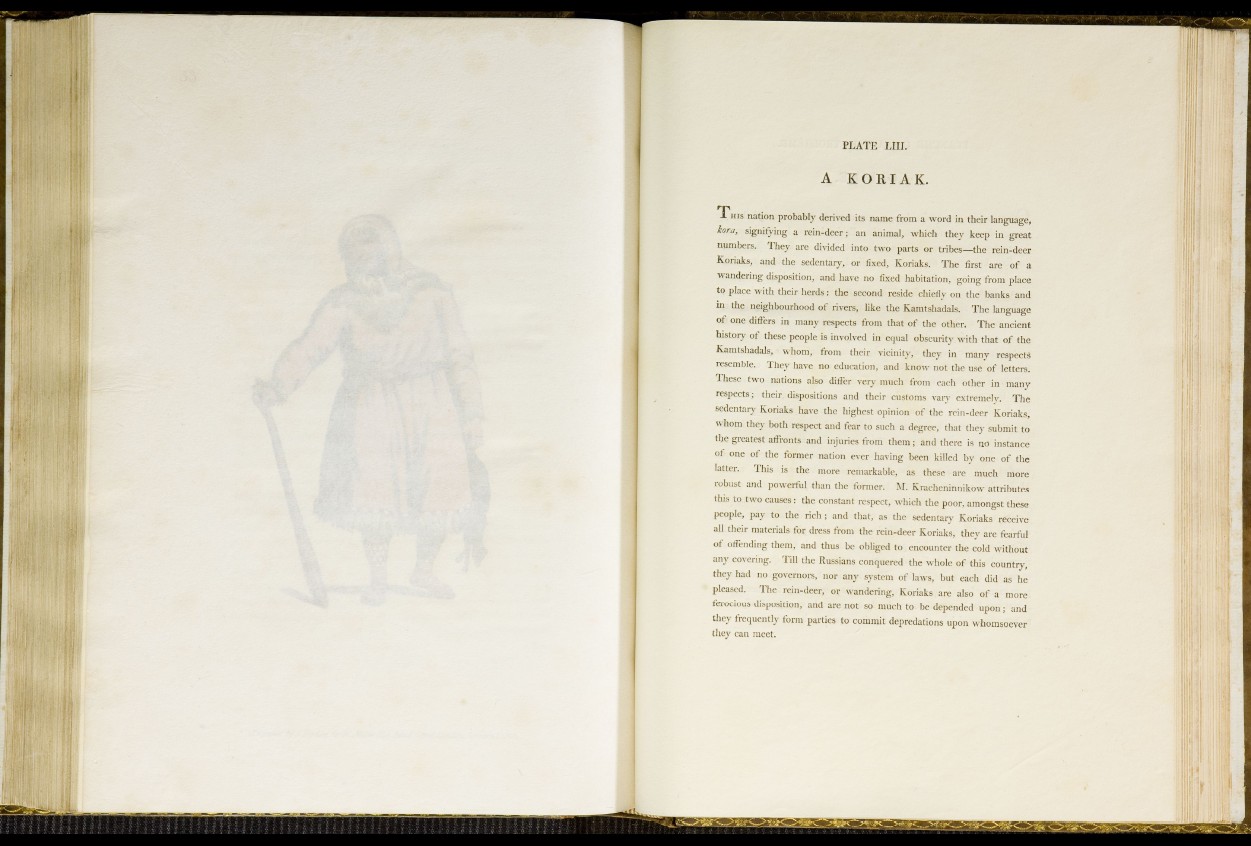
SN
< '1 »1'jf fl
• 'i
- r 'W u •
i y i
. '-iit PL A T E LIII. i^./il;:.;,
A KORIAK.
T H I S nation probably derived its name from a word in their language,
liora, signifying a rein-deer; an animal, which they keep in great
numbers. They are divided into two parts or tribes—the rein-deer
Koriaks, and the sedentary, or fixed, Koriaks. The first are of a
wandering disposition, and have no fixed habitation, going from place
to place with their herds : the second reside chiefly on the banks • and
in the neighbourhood of rivers, like the Kamtshadals. The language
of one dift'ers in many respects from that of the other. The ancient
history of these people is involved in equal obscurity with that of the
Kamtshadals, ^^•hom, from their vicinity, they in many respects
resemble. They have no education, and know not the use of letters.
These two nations also ditfei- very much from each other in many
respects; their dispositions and their customs vary extremely. Tlie
sedentary Koriaks have the highest opinion of the rein-deer Koriaks,
vv hom they both respect and fear to such a degree, that they submit to
the greatest affronts and injuries from them; and tliere is no instance
ot one of the former nation ever having been killed by one of the
latter. This is the more remarkable, as these are much more
robust and powerful than the former. xM. Kracheninnikow attributes
this to two causes : the constant respect, which the poor, amongst these
people, pay to the rich ; and that, as the sedentaiy Koriaks receive
all their materials for dress from the rein-deer Koriaks, they arc fearful
of offending them, and thus be obliged to , encounter the cold without
any covering. Till the Russians conquered the whole of this counti^',
they had no governors, nor any system of laws, but each did as he
pleased. The rein-deer, or wandering, Koriaks . are also of a more
ferocious disposition, and are not so much to. be depended upon; and
they frequently form parties to commit depredations upon whomsoever
they can meet.
i|r >i »Hh